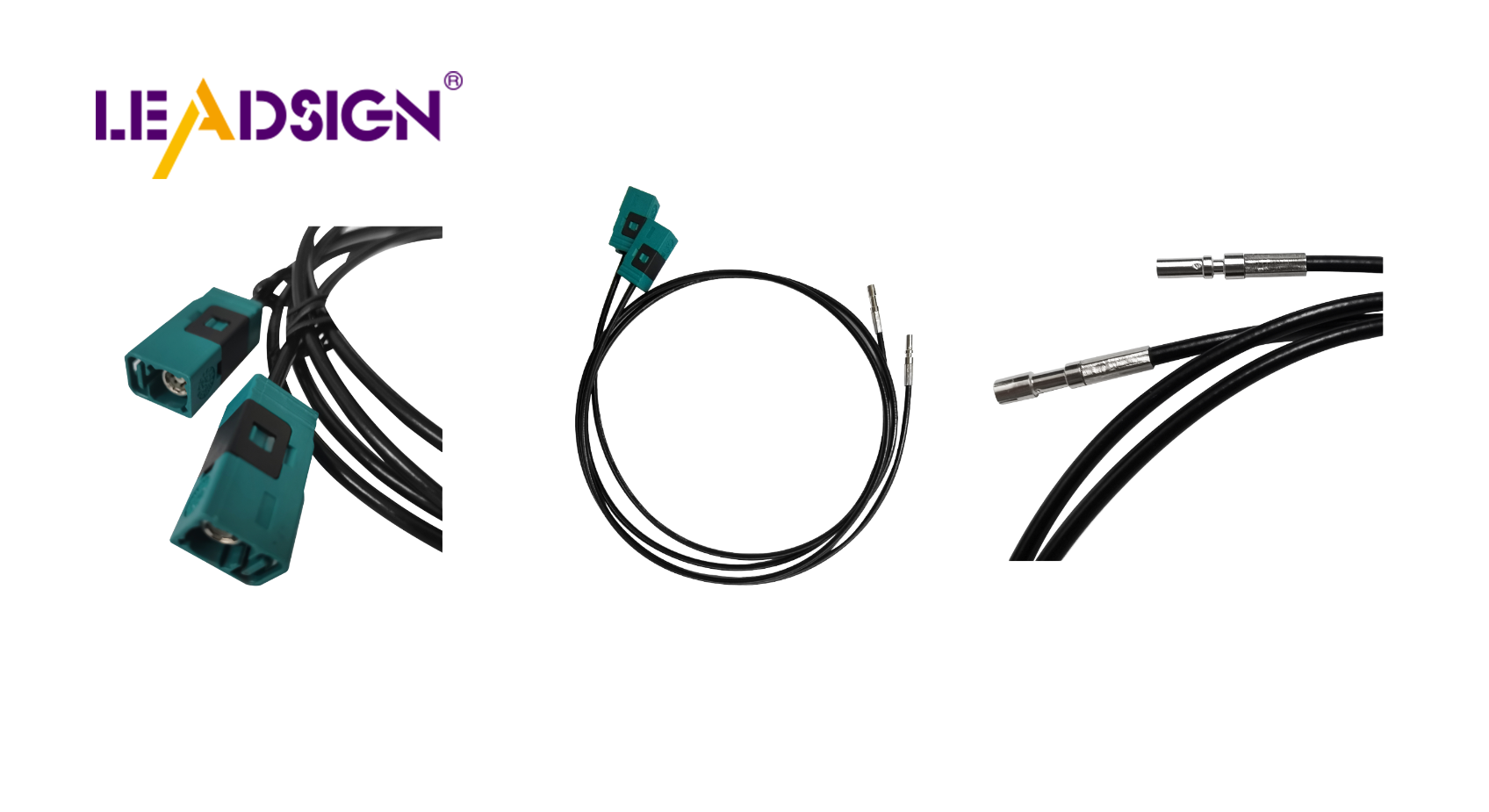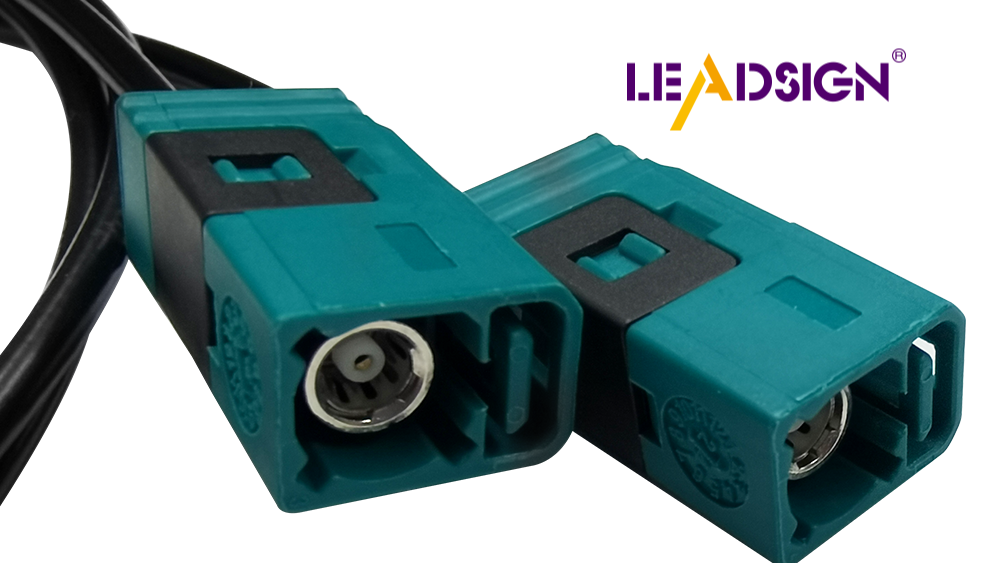Top Tips for Using Automotive Electrical Connectors Types

Automotive electrical connectors are crucial for your vehicle, facilitating the transfer of power and data between electronic components. As technology advances, these connectors become more compact and robust, capable of handling increased electrical loads. There are various automotive electrical connectors types, each designed for specific functions. These connectors link sensors, control units, and entertainment systems, ensuring everything operates efficiently and safely. Proper maintenance is essential to keep them functioning optimally, enhancing the performance of your car's technology.
Understanding Automotive Electrical Connectors

What are Automotive Electrical Connectors?
Definition and Purpose
Automotive electrical connectors are important parts in your car's system. They join wires and cables, helping electricity and data move smoothly between parts. These connectors can handle tough conditions like shaking, rust, and hot or cold weather. Their main job is to keep connections strong for good car performance and safety.
Common Applications in Vehicles
You see automotive electrical connectors used all over your car. They help connect the battery to the starter motor, lights, and control units. These connectors are also key for radios, GPS systems, and other tech features. By spreading power well, they keep your car working right.
Types of Automotive Electrical Connectors
Blade Connectors
Blade connectors are very common types of automotive electrical connectors. They have a flat metal piece that fits into a slot. You use them often with low-voltage things like switches or relays. They're simple to use, making them popular in many cars.
Ring and Spade Terminals
Ring and spade terminals make secure connections in cars easy. The ring terminal is a circle you can bolt down with a screw or stud. Spade terminals look like forks, so they're easy to put on or take off. Both types work well for battery links and grounding tasks.
Butt Connectors
Butt connectors join two wires end-to-end perfectly. Use them to make wires longer or fix broken ones. They give a strong connection that doesn't shake loose easily, great for many car uses. Crimping tools help hold the wires tight inside the connector.
FAKRA Connectors
FAKRA connectors are special for high-frequency uses like radio antennas, GPS navigation, and RF Bluetooth systems. They meet tough auto industry needs with safe coding systems and high security when assembling them. Handling fast data rates and extreme temperatures makes FAKRA connectors vital for today's vehicle tech.
Picking the right connector type
Choosing the right automotive electrical connectors types is very important. They help your car's electronics work well. These small parts connect sensors and entertainment systems. To pick the best one, think about a few key things.
Things to Think About
Power Needs
First, check your car's power needs. Each connector can handle certain electricity levels. Pick ones that match your system's power to stop overheating or breaking. Always look at the details to make sure they fit your car's needs.
Weather Conditions
Next, consider the weather where you drive. Connectors should handle heat, cold, wetness, and shaking. If you drive in humid or salty places, choose rust-proof connectors. This keeps them strong and reliable in tough spots.
Fit with Car Systems
Lastly, make sure connectors fit your car's systems well. Different types do different jobs. Some are good for GPS or radios; others for basic power links. Match them to what each part of your car needs for easy use.
Smart Tips for Picking
Follow Maker Rules
Always follow maker rules when picking connectors. These rules give tips on how to set up and care for them right. They also suggest which types fit your car model best. Following these helps avoid mistakes and keeps things working well.
Ask Experts
If unsure, ask experts like engineers or technicians about connectors. They know a lot about these parts and can help you choose right ones for your needs. Their advice makes it easier to decide smartly.
Essen Deinki, an expert in automotive electrical connectors, says knowing these parts is key: "In cars, small pieces often matter most."
By thinking about these tips, you can pick the right automotive electrical connectors types confidently for your car so everything stays connected and works smoothly.
Best Practices for Using Connectors
When using automotive electrical connectors types, follow good practices. This ensures connections last long and work well. Proper setup and regular care are important for your car's electric systems.
Installation Tips
Correct Crimping Methods
Use the right crimping methods for secure links. First, pick the correct tool for your connector type. Put the wire into the connector snugly. Squeeze hard with the tool to attach it well. This makes a strong link that won't shake loose. Good crimping stops electric problems and keeps your car's systems reliable.
Making Sure Connections Are Secure
Use grease to keep out water and rust at connection spots. This step helps connectors last longer and work better. Also, make sure connectors fit right and lock in place to stop them from coming apart by accident.
Maintenance and Troubleshooting
Regular Checking and Cleaning
Check and clean connectors often to keep them working well. Look for wear, rust, or damage signs. Clean with a soft brush or air spray to get rid of dirt. Clean connectors let power flow smoothly without stopping data transfer. Regular care finds issues early before they become big problems.
Finding and Fixing Common Problems
Spotting common problems early saves time and money. Check for loose wires, broken parts, or rusty ends. Fix any issues quickly if you find them. Change bad connectors or wires to make things work right again. Being careful stops electric failures so your car runs smoothly.
Expert Tip: "In cars, electrical connectors are key for better designs," says an expert in the field." Taking care of them keeps their performance strong."
By following these tips, your automotive electrical connectors types will work their best, helping your car stay safe and efficient.
Selecting the right car connectors is crucial for your car. These parts help your car's electronics work well. Clean and check them often to stop problems. Use the right tools and don't tighten too much for good results. Doing this helps your car's electric parts last longer. A clean connector system makes your car safer and better on the road.
See Also
Exploring the Significance of FAKRA Connectors in Cars
Navigating Ford's FAKRA Connector Solutions
Understanding the Vital Role of FAKRA Connectors in Today's Cars

